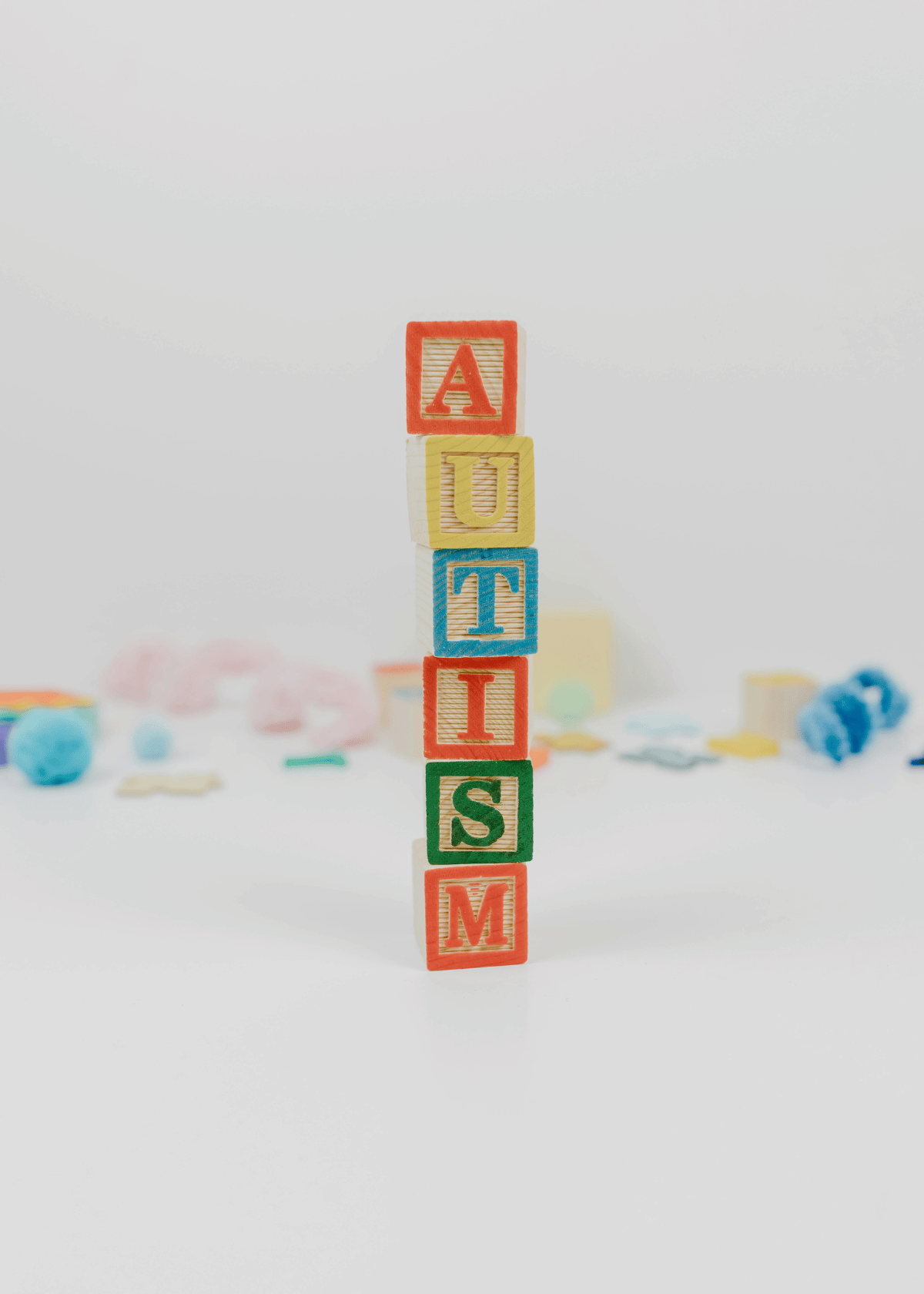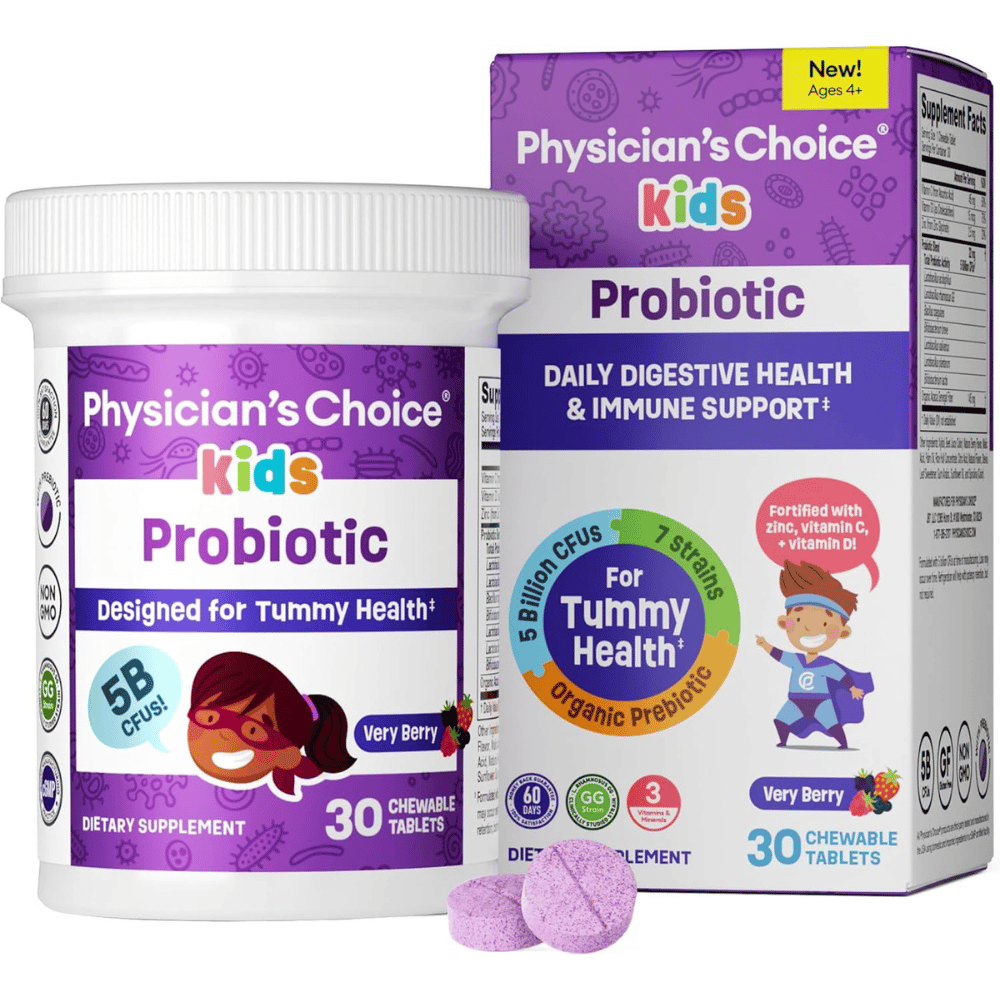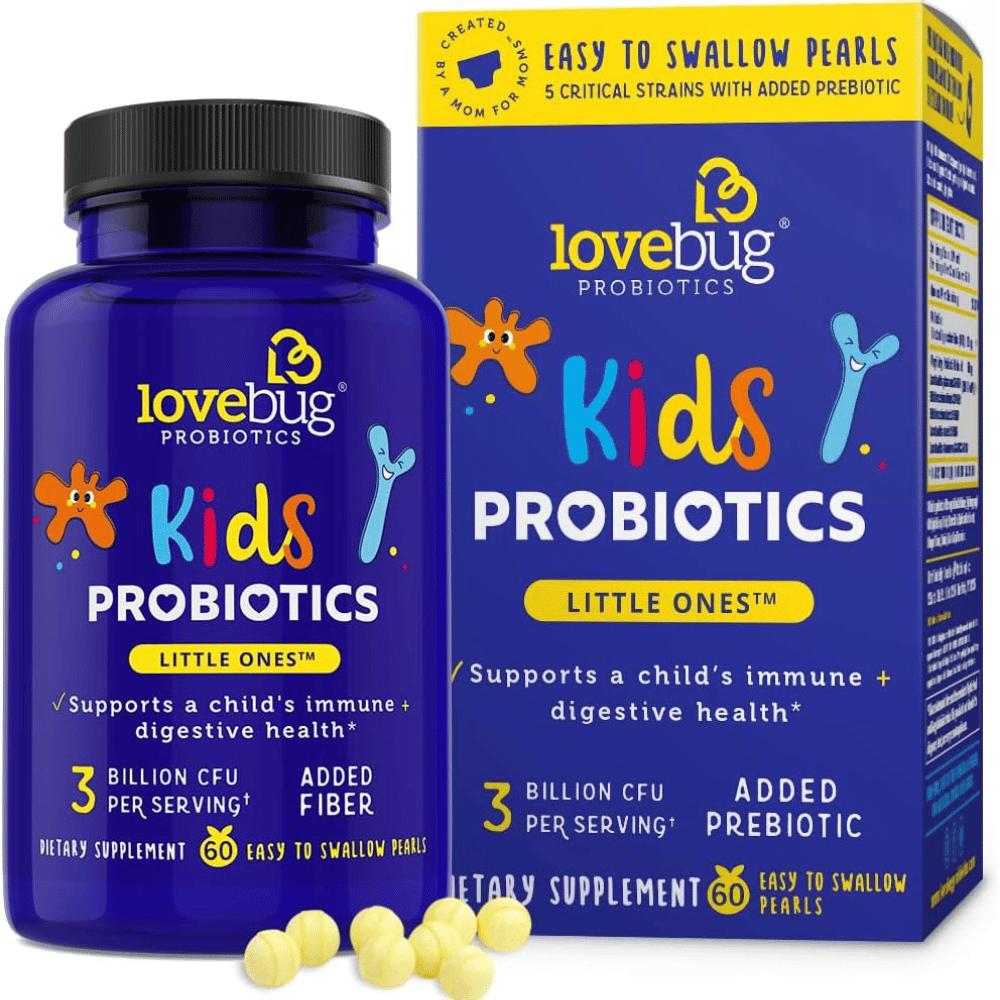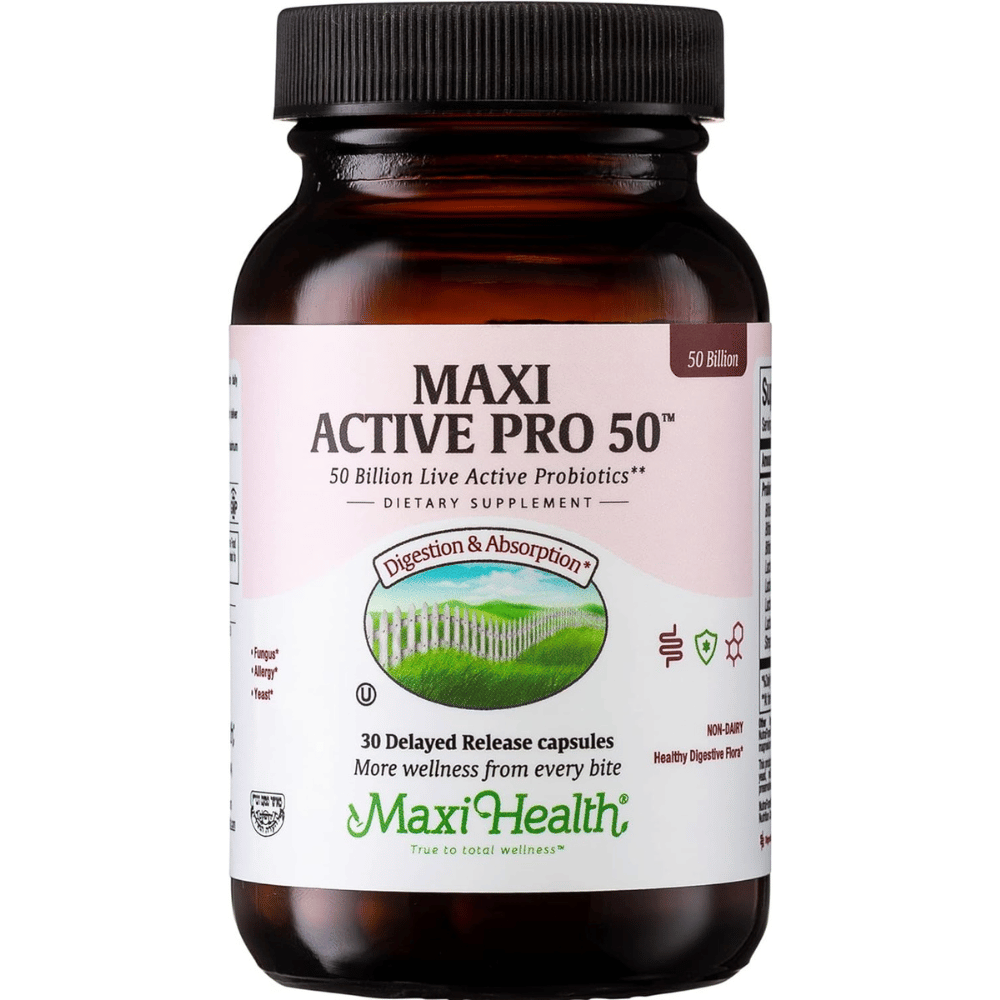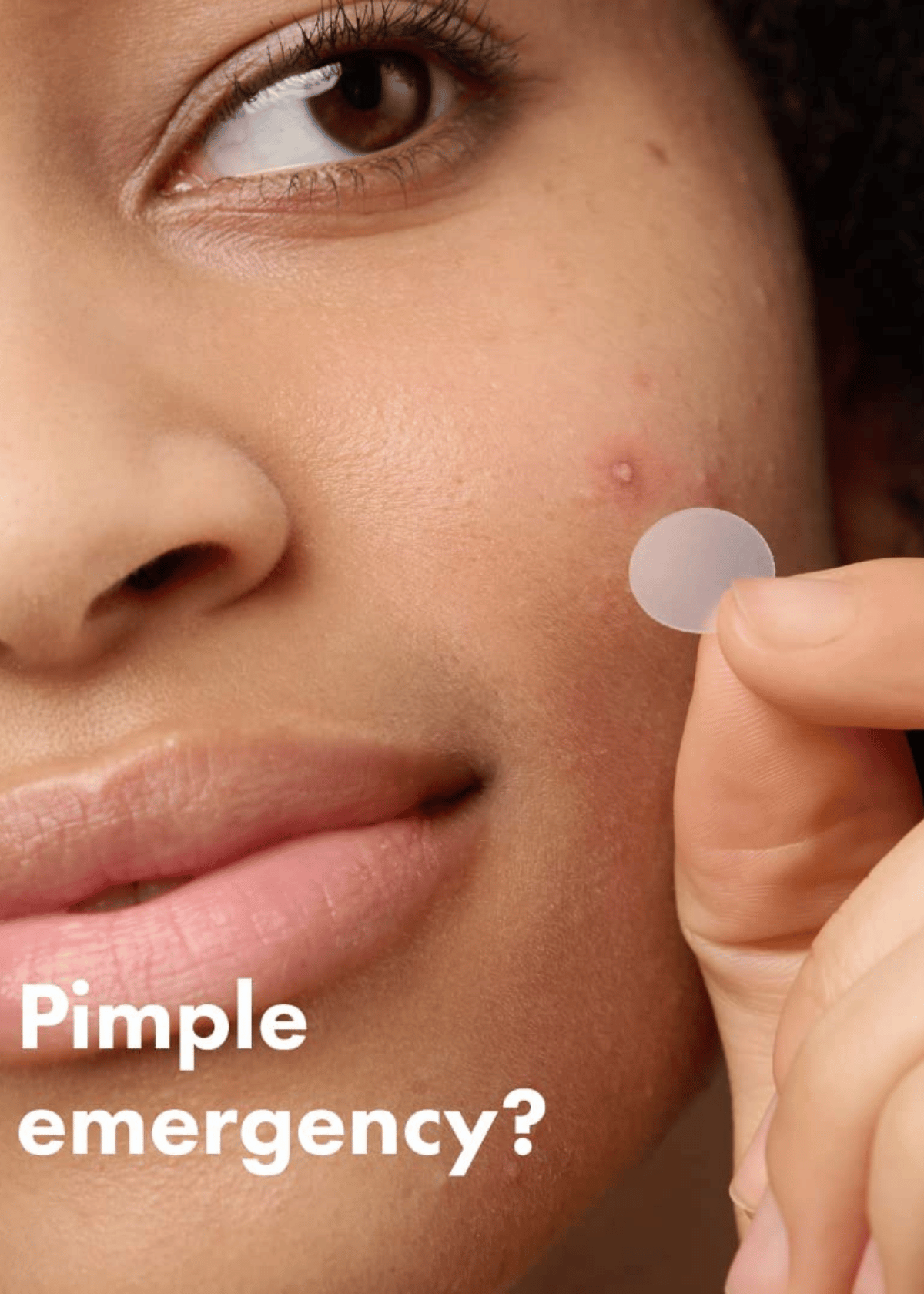Autism spectrum disorders (ASD) are complex neurodevelopmental conditions that affect many families worldwide. While the core symptoms of autism relate to social interaction and communication, many individuals with ASD also experience gastrointestinal (GI) issues. Emerging research suggests that the gut microbiota plays a significant role in the overall health of autistic individuals, leading to a growing interest in the use of probiotics as a supportive therapy. This article delves into the best probiotics for autism, exploring how they may benefit those on the spectrum.
Key Takeaways:
- Probiotics may help alleviate GI symptoms commonly associated with autism spectrum disorder.
- Specific probiotic strains have been identified that could improve gut health and potentially influence autism symptoms.
- A healthy gut is crucial for the gut-brain axis, which may impact brain function and behavior in autistic children.
Understanding Autism and the Gut Microbiome
Autism spectrum disorders are characterized by a range of symptoms that can significantly impact an individual's daily life. One of the lesser-known aspects of autism is the prevalence of gastrointestinal problems among those affected. Studies have shown that children with autism are more likely to suffer from GI symptoms such as abdominal pain, constipation, and diarrhea.
The gut microbiome, consisting of trillions of bacteria, is essential for digestive health. In autistic individuals, the diversity and balance of this gut bacteria can be disrupted, a condition often referred to as dysbiosis. This imbalance can lead to a host of issues, including inflammatory bowel disease and leaky gut, where the intestinal permeability is increased, potentially exacerbating autism symptoms.
The Role of Probiotics in Managing Autism
Probiotics are beneficial bacteria that, when ingested in adequate amounts, can help restore the balance of the gut microbiota. For children with autism, probiotics may offer a therapeutic benefit by improving gut health and reducing gastrointestinal symptoms. The gut-brain axis, a communication network linking the gut and the brain, suggests that a healthy gut could influence brain function and, consequently, behavior and mental disorders.
Research has identified specific strains that might be particularly effective for autistic individuals. These include Lactobacillus acidophilus and Bifidobacterium, which have been shown to improve gut health and reduce gastrointestinal symptoms. By enhancing the gut-brain connection, these probiotics could potentially alleviate some autism symptoms.
Identifying the Best Probiotics for Autism
When searching for probiotics for autism, it's crucial to consider the strains included in the probiotic supplement. Certain probiotic strains have been studied more extensively in the context of autism and may offer more targeted benefits. For example, Lactobacillus acidophilus has been associated with reducing leaky gut, while Bifidobacterium can help in the production of short-chain fatty acids, which are vital for gut health.
It's also important to look for probiotics that have been clinically tested and proven to be effective. High-quality probiotic supplements will often have research backing their efficacy, ensuring that they can deliver the beneficial bacteria in sufficient quantities to the digestive tract.
Probiotic Strains and Their Specific Benefits
Each probiotic strain offers unique benefits, and some are particularly well-suited for addressing the needs of autistic individuals. Lactobacillus acidophilus, for instance, is known for its ability to improve intestinal permeability and reduce inflammation. Other strains like Saccharomyces boulardii may help in managing diarrhea, a common GI symptom in children with autism spectrum disorder.
Moreover, strains such as Bifidobacterium longum have been linked to improvements in immune system function, which is often compromised in individuals with poor gut health. By choosing a probiotic supplement that contains a blend of these targeted strains, one can maximize the potential benefits for autistic children.
The Impact of Probiotics on Gastrointestinal Symptoms in Autism
Gastrointestinal symptoms are a significant concern for many individuals with autism, as they can exacerbate behavioral issues and affect overall quality of life. Probiotics have been shown to alleviate a range of GI symptoms, including abdominal pain, constipation, and diarrhea. By improving digestive health, probiotics can lead to a reduction in these distressing symptoms.
In addition to easing GI discomfort, probiotics may also help in reducing the overall inflammatory response within the gastrointestinal tract. This anti-inflammatory effect can be particularly beneficial for those with conditions like inflammatory bowel disease, which is more prevalent among autistic individuals.

Probiotics and the Gut-Brain Axis
The gut-brain axis is a complex system of communication between the gut and the brain, and it plays a crucial role in overall health and well-being. In autism, the gut-brain connection may be particularly significant, as it can influence mood, behavior, and cognitive function. Probiotics can positively affect this axis by improving gut health, which in turn may have a beneficial impact on brain function.
Studies have suggested that a healthy gut can produce neurotransmitters and other compounds that affect the brain. For example, certain strains can increase the production of serotonin, a neurotransmitter that contributes to feelings of well-being and happiness. This could have implications for managing conditions like obsessive-compulsive disorder, which is sometimes associated with autism.
Choosing the Right Probiotic Supplement
When selecting a probiotic supplement for autism, it's essential to consider several factors. The quality and viability of the probiotic strains are paramount, as they must survive the journey through the digestive tract to be effective. Look for supplements that guarantee the potency of their strains through the expiration date, not just at the time of manufacture.
Additionally, the delivery system of the probiotic—whether it's a capsule, powder, or liquid—can affect its efficacy. Some forms may be better suited for children with autism, particularly if they have sensory issues or difficulty swallowing pills. It's also worth considering supplements that are free from common allergens, as many autistic individuals have food sensitivities.
The Safety and Side Effects of Probiotics
Probiotics are generally considered safe for most people, including those with autism. However, as with any supplement, there can be potential side effects, especially when first starting probiotic therapy. These may include mild digestive discomfort, bloating, or gas, which typically resolve as the body adjusts to the new beneficial bacteria.
It's always advisable to consult with a healthcare professional before beginning any new supplement regimen, particularly for individuals with autism who may have unique health considerations. A doctor can provide guidance on the appropriate probiotic strains and dosages for one's specific needs.
The Research Behind Probiotics and Autism
The scientific community has taken an interest in the potential benefits of probiotics for autism, and numerous studies have been conducted to explore this relationship. While research is ongoing, some studies have shown promising results, indicating that probiotics can improve gastrointestinal symptoms and even behavioral issues in autistic children.
It's important to approach the available research with a critical eye, as not all studies are created equal. High-quality, peer-reviewed research that demonstrates a clear benefit should be given more weight when considering the use of probiotics for autism.

Incorporating Probiotics into an Autism Care Plan
Probiotics can be a valuable addition to a comprehensive care plan for individuals with autism. When incorporating probiotics, it's essential to do so thoughtfully and in conjunction with other therapies and interventions. Diet, for instance, plays a significant role in gut health, and ensuring a balanced intake of fiber, prebiotics, and nutritious foods is crucial.
Working with a healthcare provider or a dietitian who specializes in autism can help tailor a probiotic regimen that complements other treatments and addresses the individual's specific needs. It's also important to monitor the effects of probiotics and adjust as necessary based on the individual's response.
How We Choose
Given the vast array of probiotic options on the market, determining the most suitable one for individual needs can be challenging. Our team has conducted extensive research on numerous products to identify the top five probiotics for autism. This effort is aimed at making the selection process for consumers easier, enabling them to find the appropriate probiotics without having to guess or waste money on something that won't work.
We hope you find your next best buy from the list below! Each product was independently selected by our editors. BlakesBestBuys may collect a share of sales or other compensation from the links on this page if you decide to buy something (that's how we stay in business). Enjoy finding your next best buy!
The Top 5 Probiotics For Autism
What We Love About It
Children enjoy the flavor. Ensuring your children are willing to take a probiotic often hinges on its taste. This probiotic is expertly formulated with a natural, delicious berry flavor, eliminating the need for artificial dyes and making it a hassle-free experience for parents. It includes beneficial strains such as Lactobacillus reuteri and Bifidobacterium, which have been shown to aid in reducing gastrointestinal symptoms such as constipation and diarrhea, which are common among people with autism. Each serving contains 5 billion colony-forming units (CFUs) across 7 diverse strains, coupled with organic prebiotics, essential vitamins, and minerals. This combination is designed to bolster digestive and immune health in children.
What Makes Physician's CHOICE Probiotics for Kids Stand Out
Physicians Choice Probiotics For Kids are endorsed by pediatric gastroenterologists, specially formulated for children and validated by an esteemed Scientific Advisory Board. This product features L. Rhamnosus GG, the most extensively researched probiotic strain in children, which has been demonstrated to support their well-being.
This probiotic supplement is crafted to be free from common allergens, including soy, wheat, peanuts, tree nuts, sesame, milk, eggs, fish, shellfish, and gluten. Additionally, it contains no sugar, dyes, or genetically modified organisms (GMOs), ensuring that all children can benefit from a premium probiotic supplement. Each batch undergoes rigorous third-party testing to guarantee purity and potency.
What We Love About It
Chewable or Swallowable Probiotics for Kids. LoveBug Little Ones probiotics come in small, soft pearls that are easy for most children to swallow. If your child prefers, they can also chew them, thanks to the soft-pearl design. Suitable for children 6 and up. Children with autism have their own health needs, such as diarrhea, eczema, constipation, digestive problems, and weak immune systems. These probiotics are tailored with 5 strains specifically studied for kids to help address these issues.
Why Lovebug Probiotics for Kids Stand Out
These probiotics are sugar-free and allergen-free to ensure that the advantages of a multi-strain, clinically studied probiotic are not negated before they even reach your toddler's stomach. Lovebug probiotics are developed by a mother, for mothers, and trusted by mothers everywhere. Their products undergo third-party testing and are manufactured in the USA, in a GMP-registered facility adhering to the highest quality standards.
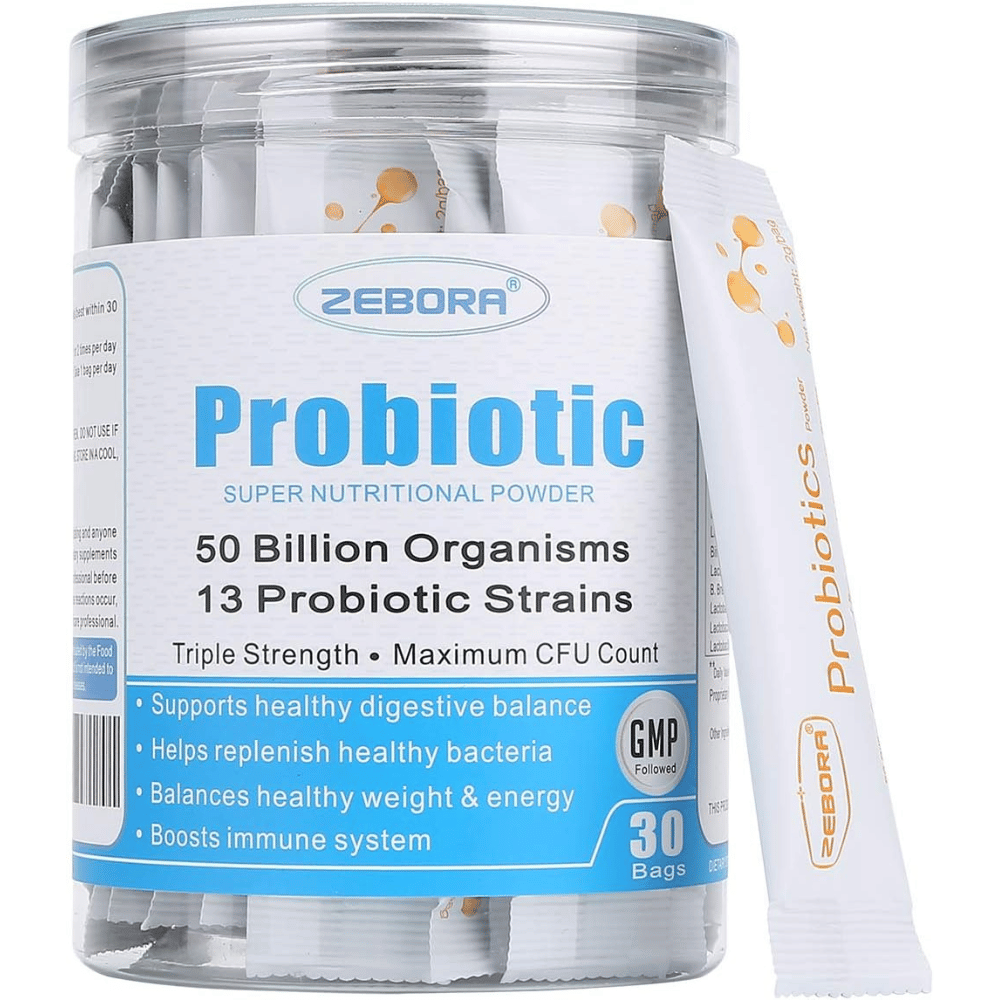
Best Probiotic For Autism Individual Powder Packet
ZEBORA Probiotics for Women, Men and Kids
What We Love About It
ZEBORA Probiotics are packed with good bacteria that help keep your gut healthy, boost your immune system, and help your body absorb nutrients better. They're especially good for kids with autism because they contain probiotic strains that have been shown to lessen digestive and behavioral issues linked to autism.
Why ZEBORA Probiotics for Women, Men and Kids Stands Out
This probiotic supplement contains a powerful blend of 50 billion CFUs from 13 different, clinically tested strains, including L. Acidophilus. It's enriched with four types of organic prebiotic fibers to enhance its effectiveness. The powder form improves absorption, and the formula includes extra amounts of prebiotics and probiotics to ensure they remain effective.
ZEBORA probiotics use special delayed-release technology to protect the cultures from stomach acid, ensuring they reach your gut where they're needed. Our advanced formula is designed to work all the way to the large intestine for comprehensive support.
What We Love About It
Maxi Health Active Pro-10 is a probiotic supplement that is increasingly recognized for its potential role in alleviating symptoms associated with autism. Emerging research points to a connection between an imbalance in gut bacteria and the development of autism symptoms. This has prompted numerous parents and caregivers to explore the use of probiotics as a supportive treatment.
Maxi Health is a trusted name in the field of kosher supplements, boasting a diverse product line of over 250 items. Their commitment to quality is evident in their manufacturing process, which takes place in a GMP Certified facility—a mark of excellence in production standards.
Why Maxi Health Active Pro-50 Stands Out
What sets Maxi Health Active Pro-10 apart is its specialized formulation that is designed to bypass the acidic environment of the stomach. Instead, it dissolves primarily in the small intestine, which enhances its absorption and, consequently, its effectiveness compared to other probiotics on the market.
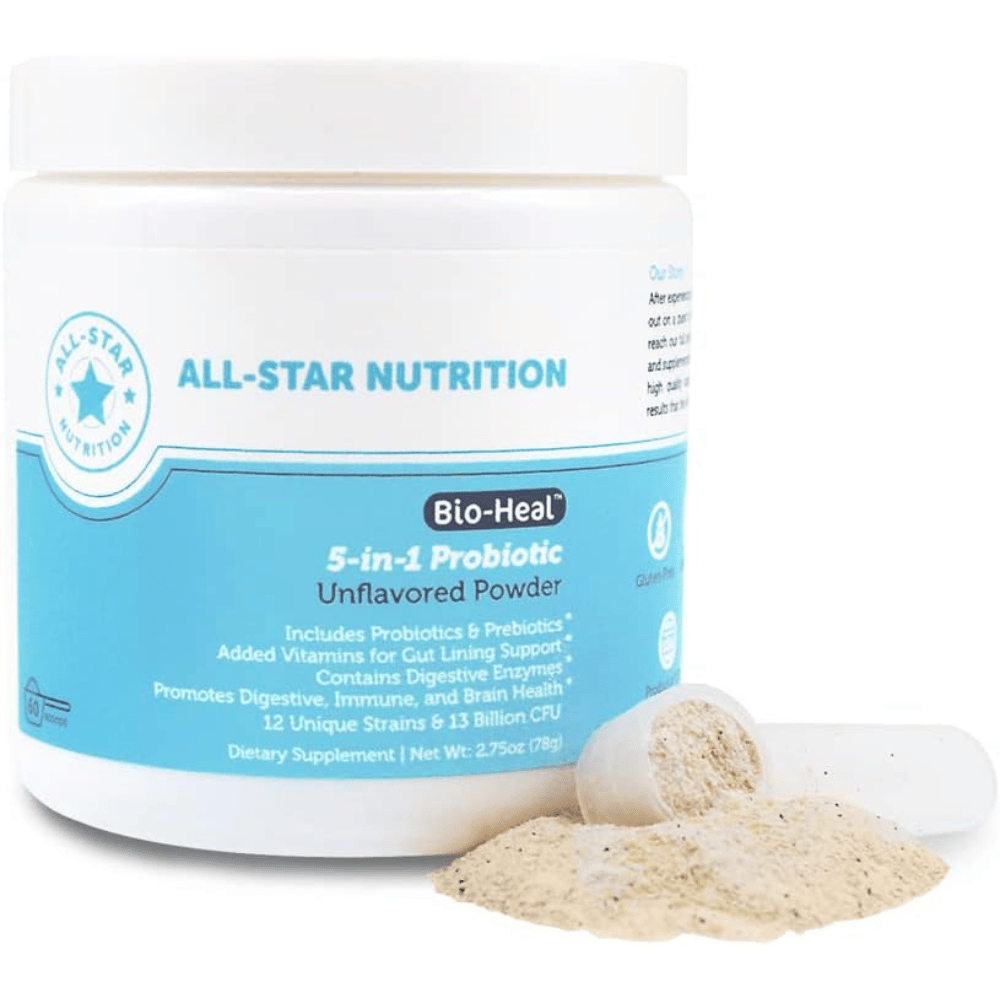
Best Probiotic For Autism Powder
5-in-1 Bio-Heal® Probiotic for Kids, Men & Women
What We Love About It
Maxi Health Active Pro-10 is an inexpensive probiotic supplement that may help ease autism symptoms. Studies suggest that an uneven mix of gut bacteria might be linked to autism. As a result, many parents and caregivers are considering probiotics as a possible way to help. It contains the two most recognized strains shown to help with digestive and behavioral symptoms that kids with autism exhibit.
Why 5-in-1 Bio-Heal® Probiotic for Kid, Men & Women Stands Out
Each dose of this comprehensive probiotic blend for both adults and children boasts an impressive 13 billion CFUs, encompassing 12 distinct bacterial strains. This potent formula is further enriched with essential vitamins, zinc, and Chicory Root fiber. Bio-Heal steadfastly commits to purity and safety by excluding any fillers, gluten, milk, eggs, wheat, peanuts, additives, or preservatives. Their mission is to aid children in achieving their utmost developmental milestones through the power of nutrition and targeted supplementation.
Summary
Probiotics offer a promising avenue for supporting individuals with autism spectrum disorders, particularly those who suffer from gastrointestinal issues. By selecting the best probiotics for autism, which include strains like Lactobacillus acidophilus and Bifidobacterium, one can potentially improve gut health, alleviate GI symptoms, and positively influence the gut-brain axis. While research is ongoing, the current evidence supports the use of probiotics as part of a comprehensive care plan for autism. As always, it's essential to consult with a healthcare professional to ensure the safe and effective use of probiotics.
FAQ'S
Can probiotics cure autism?
No, probiotics cannot cure autism, as it is a complex neurodevelopmental disorder with no known cure. However, probiotics may help manage certain symptoms associated with autism, such as gastrointestinal issues, and contribute to overall well-being.
Are there any specific probiotic strains that are best for individuals with autism?
While research is still evolving, certain strains like Lactobacillus acidophilus and Bifidobacterium have been shown to be beneficial for improving gut health and reducing GI symptoms in individuals with autism. It's best to consult with a healthcare professional for personalized recommendations.
How long does it take to see the benefits of probiotics in autistic individuals?
The time frame for experiencing the benefits of probiotics can vary from person to person. Some may notice improvements in GI symptoms within a few weeks, while others may take longer to observe changes. Consistency and monitoring are key to determining the effectiveness of probiotic supplementation.
Should autistic kids take probiotics?
There is evidence that probiotic supplementation improved the behavior of ASD children through the gut–brain axis. The effect of probiotics on psychological conditions such as depression and anxiety is relatively well known.
What probiotics are best for ADHD and autism?
According to recent investigations, several lactobacillus strains, including L. Paracasei 37, L. Planetarium 128, L. reuteri DSM 17938, and Bifidobacterium longum, have been effective in treating children's neurodevelopmental disorders such as ASD and ADHD.
What is probiotics food for autism?
Research has shown that probiotic microbes have positive effects on the digestive and gastrointestinal health of both adults and children. Probiotic supplements and food products may treat autism and attention deficit hyperactivity disorder (ADHD) for children with ASD.
What does the gut have to do with autism?
Imbalances in the gut's bacteria and the resulting impact on the gut-brain connection may play a role in causing disorders like autism. However, the specific ways this happens and how much the gut bacteria are responsible remain unclear.

